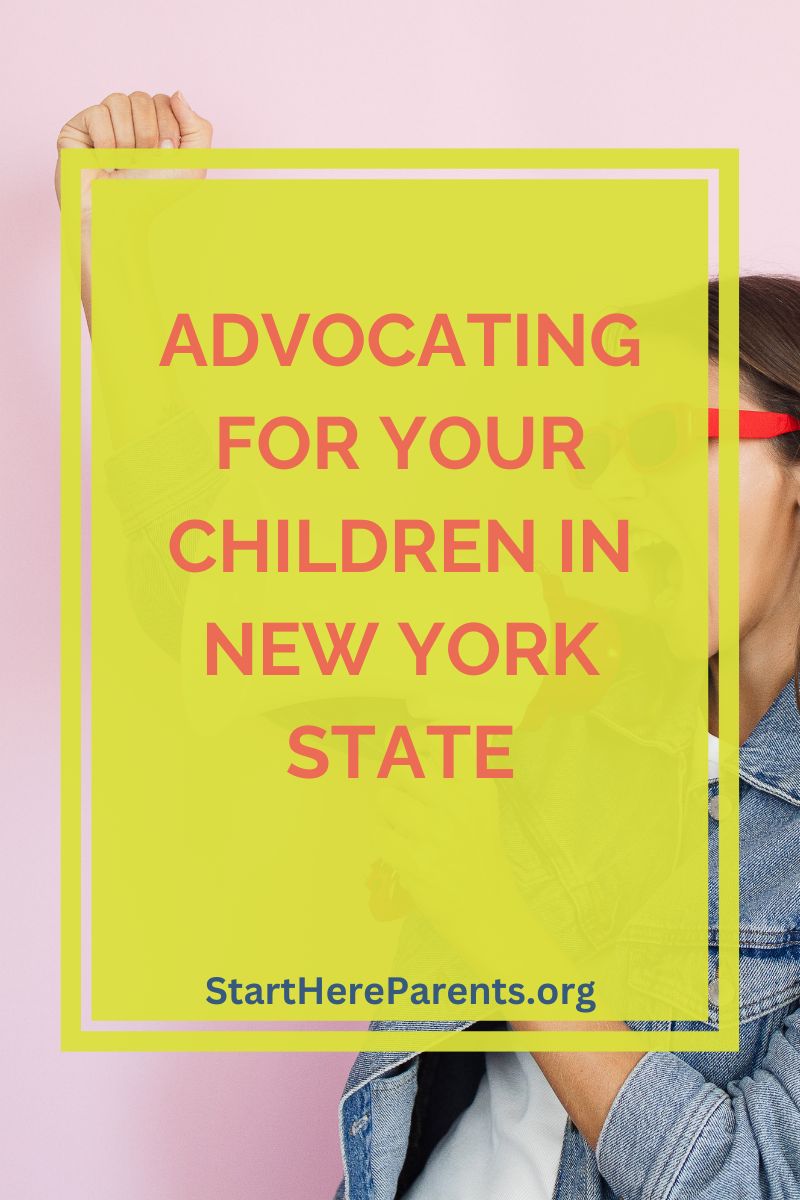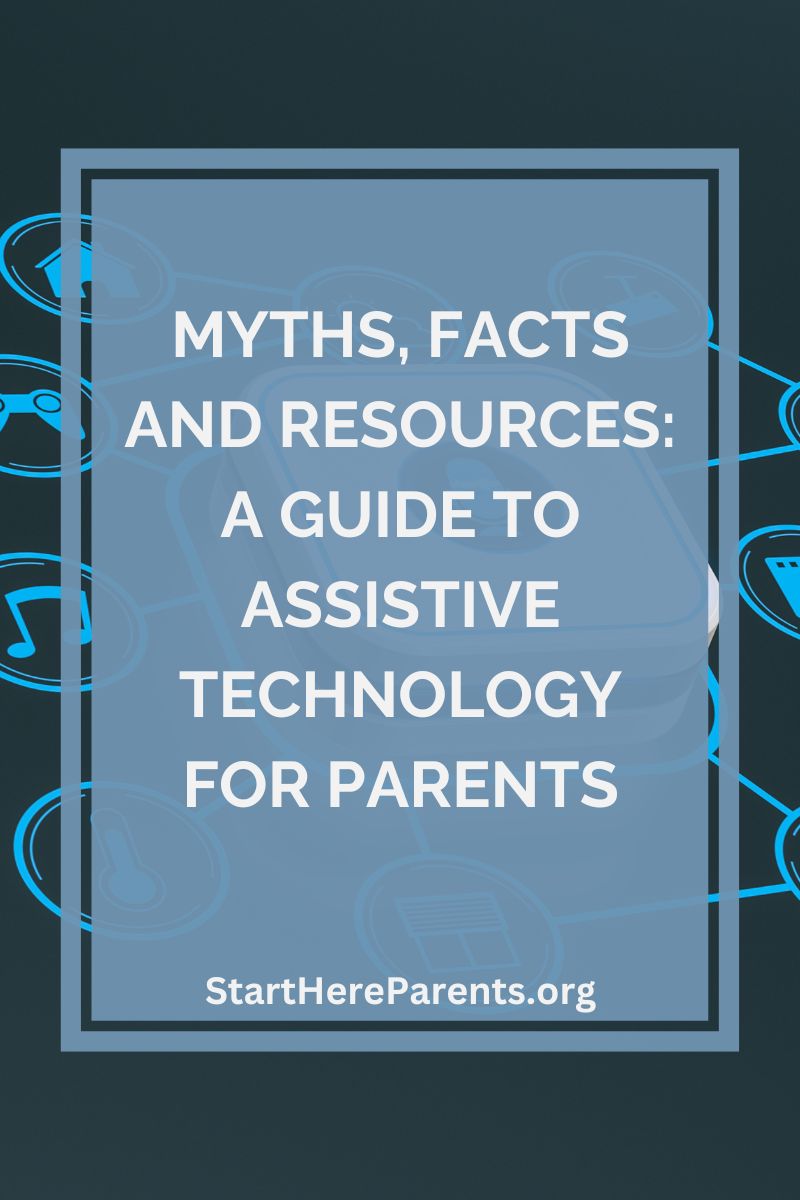
How Parents of Children with Disabilities Can Become Powerful Advocates in New York State
Why Now Is the Time If you’re the parent of a child with a disability, you’ve already mastered the role of advocate, even if you

There are some amazing devices available now that only recently sounded like something you would only see in a movie about the future. It’s true that some ideas take a while to become affordable and practical. Even so, there are too many exciting new possibilities to keep up with, many at low cost or no cost.
Other parents and caregivers can be the best guides when you’re looking for something specific, but this is a good place to get a sense of what’s new and interesting.
Avaz: picture based communication and learning app for people with disabilities. Helps people with speech difficulties communicate their thoughts, emotions, ideas, needs and wants.
Talkit: artificial intelligence that assesses the users language, however unclear that may be, and make that same speech understandable. Talkit is designed to be social and learn with the user to create the most effective tool possible.
Look at me: smartphone app developed to help kids with Autism Spectrum Disorder make eye contact and improve their communication skills. Designed to support kids who have trouble talking to others, reading expressions, remembering faces and / or expressing their feelings.
Rogervoice: the app that captions your calls. Free to use, the app transcribes your calls so you can read your conversations in real time, directly on your mobile phone. This allows those who cannot hear well to use a phone.
HearMeNow: app that allows people to capture and share information about themselves in a way that’s meaningful to them. This allows for more seamless communication between an individual and their care team, teachers, providers and family members.
Xander Glasses: in circumstances when you can’t hear what someone is saying, Xander glasses let you see what someone is saying in real-time by translating speech into text through smart glasses. This allows the user to follow conversations while looking at the speaker and their surroundings.
Lingraphica: Communicate in four different ways. Improve speech and comprehension through a series of activities, videos, and quizzes. Connect with others online or bring the device wherever you go. Devices are available to try for free. Communication and therapy apps are also available, even if you cannot get a device.
Kindly Human: connecting people who could use a little encouragement or support with people happy to chat, sometimes about specific topics. *also a good support for parents.
HandHoldAdaptive IPrompts: Used by caregivers, parents and educators to create and present visual schedules, timers and choices. Visual support tools designed to improve attention to task, increase understanding of upcoming events, smooth transitions to new environments, and empower visual thinkers to stay organized and communicate their preferences.
Be My Eyes: connects blind or low-vision users who want sight assistance with volunteers and companies across the world using live video and artificial intelligence. There are currently over 100,000+ sighted volunteers active on the app.
Take Your Pills: free pill reminder and meds tracking app.
Pill Reminder All in One: rx refill reminders, medication tracker and medicine monitor in an app. Medication and recurring reminders as well as tracking the remaining quantity of medications with refill alerts when running low.
Truthbrush: smart toothbrush that tracks brushing, monitors effectiveness and creates a history and brush log to increase toothbrushing efficiency. Also has a fun rewards system for incentivizing use!
Autism Tracker: visual calendar and graphs to view and discuss patterns. Daily reminders regarding food, mood, health, sleep, and behaviors are all shown on a glanceable report.
Safety Sleeper Beds: beds to keep your loved one safe at night.
Hero Pill Dispenser: you get a dispenser that pairs with an app, making the management of medications easier and more convenient.
Smart Lock: If you need to keep the front door closed but make sure a babysitter or nurses or therapists can get in, there are now different smart locks to choose from. The August Smart Lock is one, and it really is intelligent: it lets you use your smartphone as a key, you can give others access exactly when it’s needed and see from a log who entered.
Smart Doorbell: The Ring smart doorbell (one of many brands) uses a motion-sensor camera to film whoever is at the door, so no one is allowed in unless they are recognized.
HandHoldAdaptive Story Maker: app for creating and presenting stories using pictures, text and audio. Used as an intervention in classrooms, particularly with students who have autism.
Voice Dream: Not the cheapest but one of the best designed and best rated text-to-speech apps for a kid who needs help reading and understanding. *Voice Dream has a school-focused option as well.
HandHoldAdaptive Speech Prompts: specifically for individuals experiencing difficulty with prosody – musical aspects of speech- like rate, rhythm, volume, phrasing and intonation. Includes feedback on loudness, volume zones, voice matching and how inotation affects meaning.
Movia Robotics: robot-assisted instruction is not the most cost effective option but Movia’s help children learn and grow by connecting with them in a way that is nonjudge mental and simpler than direct human interaction. Movia can help with education, therapeutic intervention and loneliness by breaking down barriers to communication.
Robokind: is an education technology company that combines assistive technology with curriculum that accelerates outcomes that are measurable.
Tact Plus: a braille printer that can be taken on the go. Print braille anytime, anyplace.
Floreo: virtual reality for neurodiverse learners.
Miracle Modus: Just going to the store can be a challenge for a kid who gets easily overwhelmed when there is too much going on. This app soothes with colors, shapes and soft sounds by emitting soothing patterns of light and sound.
Air Draw & Fingerprint magic: fingerpainting games that are simple and soothing.
Mightier: you purchase a kit and a subscription. Your child learns emotional regulation while wearing a sensor and playing enjoyable games. Track your child’s progress and receive customized support through the Mightier parent app.
Fireworks Arcade: you can create your own visual fireworks show by touching the screen.
Swirl City: particle drawing, swirling and twirling app based on the physics of fluid dynamics. Listen to the ambient background music while you watch your drawing move.
Fluidity HQ: like playing with slime, without the mess.
Relax Melodies: free app that uses calming sounds to help with sleep, relaxation and meditation.
Stress Baal: a place to take your stress out. You can squeeze your device and hear a popping sounds, or shake for a vibrating hand massage.
Roll Mobility: a community-driven app that equips you with reliable information about the accessibility of restaurants, public spaces, businesses, trails, and parking areas. Search a location and log any accessibility ratings you encounter to increase the accuracy of the app.
Wheelmate: interactive app to find wheelchair- friendly restrooms and parking.
IAccessLife: reviews of public places based on their accessibility. This app includes restauraunts, hotels, concert venues, sporting arenas and more.
AccessNow: Discover accessible places.
Glidance: the world’s first self-guided, AI- powered mobility aid designed to help people in the blind and low vision community navigate. Can load pre-mapped routes or accommodate spontaneous walking. Helps locate doors, elevators, stairs and more.
WeWalk: a smart cane for walking assistant. Includes an intelligent voice assistant with GPT integration to answer questions and make traveling more simple with turn-by-turn navigation, points of interest and many other talk features.
Switches: Playing with toys or turning on a light can be difficult for a kid who has trouble coordinating hands, fingers and eyes. Switches—any device that can turn something that runs on battery power or electricity on or off—can help make a kid with fine motor skill issues a lot more independent. Voice activation can be impressive, as we see with systems like Alexa, but there are many kinds of simple switches.


Why Now Is the Time If you’re the parent of a child with a disability, you’ve already mastered the role of advocate, even if you

Navigating the world of assistive technology (AT) can feel overwhelming, but you’re not alone. Whether your child is just starting to explore tools that support